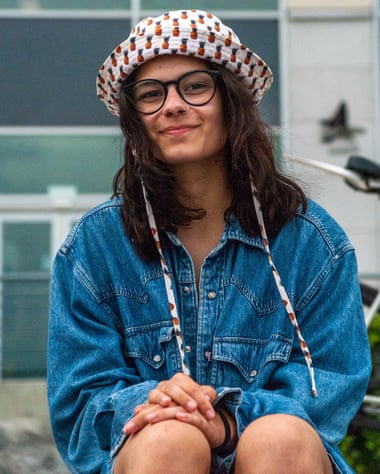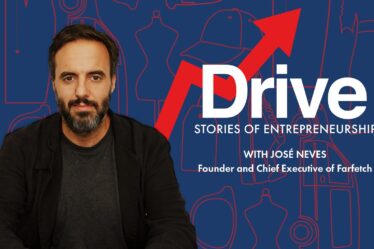
When Mitzi Jonelle Tan first saw Jon Bonifacio at a student council meeting at the University of the Philippines in 2017, she knew she liked him. But it wasn’t his good looks or sense of humour that got her swooning: it was his interest in climate activism. “I looked at him and knew we could be activists together,” she says. They went on to spend four years together as a couple, and even after splitting up earlier this year they remain close.
For Tan and Bonifacio, both 24, who are climate activists for the Fridays For Future movement, finding a partner with shared values isn’t optional – it’s a must. “Of course there are reasons I love her outside our climate work,” says Bonifacio. “But it’s a fundamental part of our relationship.” They are not alone.
As the climate crisis worsens, people around the world are changing their lifestyles to reduce their carbon footprints. From everyday choices such as whether to drive or eat meat, to bigger decisions about whether to fly or have kids, the crisis is increasingly influencing how people choose to live – and who they choose to love.
In 2019, the dating site OkCupid saw a 240% increase in mentions of climate change on users’ profiles, with the dating app Tinder reporting a similar trend. The rise of people looking for partners with compatible climate views led OkCupid to create a function that filters out climate deniers.
“People are increasingly thinking about the climate when they’re choosing who to go on a date with,” says Matthew Goldberg, an associate research scientist at the Yale Program on Climate Change Communication.
“For people who are climate-conscious, finding a partner with shared values on the climate can be really important,” says Andrew Bryant, a clinical social worker and psychotherapist specialising in climate mental health. “It comes down to questions of: Do I feel as if I can relate to you? Do you get me?”
This is particularly true among millennials and generation Z. “I wouldn’t date a climate change denier,” says Elleonora Ali Uddman, an 18-year-old Swedish-Kurd. The climate crisis has already been a feature of her romantic life. While her first girlfriend wasn’t as interested in the climate as she was, they spoke about it often, in the same way teenagers speak about music or movies. “I try not to let it be everything that I talk about and let my personality come through,” she says. “But I also wouldn’t date someone who defied science.”
Goldberg warns, however, that dating people with the same climate views may not be helpful to the cause in the long run. “A partner is the closest person in someone’s life and they are the best person to influence their thinking,” he says. “If couples have the same views, there isn’t any room to make any change.” His research has found that in practice, couples often don’t share the same beliefs or behaviours about climate change, which, he argues, is a good thing. “As climate change becomes more integrated into life decisions, such as whether to get a car or how to heat your home, it will increasingly become a topic among couples,” he says. “If they have different views, there is more chance for change.” While it may be harder to change the mind of a partner who denies climate science, there could be more wriggle room with one who is simply less well informed or apathetic about the climate crisis, he says.
Cristina Gnecco, 27, has experienced first-hand how romance can spread climate consciousness. She was first introduced to the idea of sustainability by her college boyfriend. On one of their first dates in 2015, he refused to take a plastic bag in a shop even though they had items to carry home. “Him staying so strong in his conviction made me ask: why does this matter so much?” she says.
At the time, climate change was not on Gnecco’s radar. But her boyfriend showed her how it was relevant to the topics she cared about, including addressing poverty. “It became a huge part of my life – personally and professionally,” she says. She gave up eating meat and as a couple, they spent a lot of time seeking out climate-friendly ways to live, such as travelling to Times Square in search of New York’s most succulent vegetarian burger.
But the climate crisis wasn’t always something to bond over. “The biggest fight we ever had was because we disagreed on how to solve climate change,” she says. “I felt there were business solutions and he thought that was a very neoliberal way of thinking.”
Though the couple has since split, she finds herself having the same disagreement with her new partner – only this time she is arguing from the other perspective. “If the question is, can a loved one influence your views on climate change, the answer is yes,” Gnecco says, “in a really big way.”
But when a person’s climate views do not shift, it can cause problems. Bryant, who runs a private therapy practice in Seattle, has seen all types of issues disrupt relationships over the years. But recently, he says, more and more people are seeking counselling for marital problems related to the climate crisis.
“It is similar to lots of challenges couples face when they are trying to integrate two different minds, cultures and families into one unit,” he says. “It’s almost like a religious difference. You can love and care about each other but if there is a different perception of the issue it can create distance.”
Most commonly, Bryant’s clients disagree about consumption patterns such as flying and consumerism. “One person wants to upgrade that computer or take that flight, and the other feels guilty,” he says. Many of his clients work in the tech industry, and some want to quit their lucrative jobs to work on climate change, with their spouse sometimes worrying about the financial repercussions for the household.
One of the hardest climate-related topics among couples, he says, is whether to have children. Some people argue it is unethical to bring another human being into this world when emissions are already so high. Nearly a quarter of adults who haven’t had children say climate change is factoring into their reproductive decisions. A rising number of men are getting vasectomies and some women have gone on birth strike, citing climate inaction as the reason behind it.
“I have always hoped to have a family,” says Alice Aedy, a British climate documentary film-maker. “I would never have expected anything to get in the way of those daydreams, but the uncertainty of climate change leaves the stakes feeling higher than ever.”
Aedy and her partner, Jack Harries, are aligned in their climate values: together, they make documentaries about the climate crisis and have launched the climate production company Earthrise. But the question of whether to have kids during a climate emergency remains challenging.
“We’ve had conversations about, can we do this? Is it ethical? Is it a selfish desire?” says Harries. “Alice has always maintained that we should. She speaks about people in war zones having children, even though they are living in challenging situations. But I’m not as sure.”
Harries started questioning whether he wanted to have kids after the IPCC released its dire report on the state of the climate last summer. “For me, it’s not the emissions that are the problem,” he says. “It’s the idea that you would be bringing children into a world of systemic collapse.”
But even among climate advocates and scientists, there is disagreement about whether withholding from having children is an effective or humane response to the crisis, with some arguing it places the burden of responsibility of curbing emissions on individuals instead of institutions.
Though these topics are challenging, Bryant hopes that discussions and disagreements among couples can be opportunities to push people towards greater climate consciousness. “There are always opportunities for growth,” he says.
Tan and Bonifacio say that their discussions have changed their views on the crisis. When they first started dating, Tan struggled with eco-anxiety. “I was deeper into activism at that point and it felt like a burden to explain it,” she says. But during their time together, Bonifacio came to understand how debilitating climate anxiety can be – not just for Tan, but for everyone. “I became more exposed to the reality of this issue around the world,” he says. “Our relationship made me want to work more on climate change.”
“I can’t imagine myself with anyone who doesn’t care about the climate crisis,” Tan says, as she looks back at the relationship. “I don’t think I can relate to someone who can’t see the importance of caring about our planet.”


